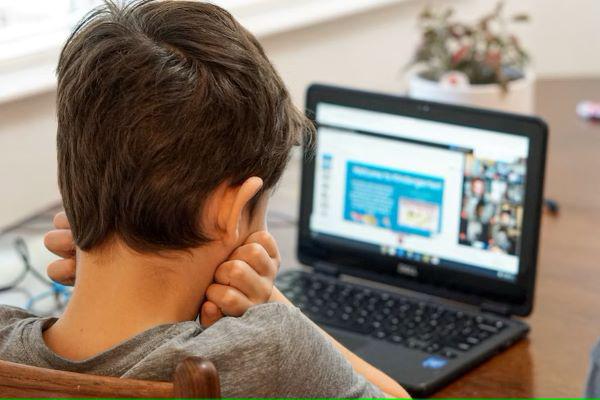In case you missed it see what’s in this section
Let's Talk
A Complete Guide On How To Protect Your Child Online

Protecting your child online isn’t just an option; it’s an absolute necessity. The Internet offers endless opportunities for learning, creativity, and connection, but it also poses various risks for dangers. As parents, ensuring your child’s safety in the virtual world is paramount to safeguarding their well-being, privacy, and emotional health. Here’s a comprehensive guide to help you keep your child safe while they navigate the online world:
Use Parental Control Software
There are numerous parental control software options available to help you protect your child online. These tools can help block inappropriate content, set time limits, and monitor their online behaviour. For example, a reputable VPN service encrypts the Internet connection between your child’s device and the VPN server, ensuring that their online activities and data are protected from potential hackers or malicious actors attempting to intercept the information.
By installing ExpressVPN servers on your child’s devices, you can rest assured that your child’s protected from potential public Wi-Fi hackers, spies, and third parties. Similarly, if you have a teen that likes to travel around, a VPN server will allow your homesick teen to watch their favourite British programmes wherever they are in the world. Not only can a VPN give your child the privacy and anonymity they deserve, but it can also allow them to access the content they’ve grown to know and love with zero restrictions! It’s a winner for all involved.

Educate Your Child
All behaviour is learnt, no matter how much we’d like to wish otherwise. HuffPost highlights how a parent’s direct interaction with their child impacts their brain development. This is how parenting styles can be passed down through generations. With this being said, it’s important to be a positive role model for responsible online behaviour. Show them how you’re practising safe Internet habits, and also allow yourself to have screen-free time with your child for a set amount of hours each day. This way, your child can come to learn that there’s no need to have such a reliance on gadgets for fun.
To educate your child on the dangers of the Internet, start by having an open and honest conversation. Discuss the potential risks and benefits of being online, and encourage them to share any concerns or experiences they encounter online. From here, you can slowly teach your child about online safety, including the importance of keeping personal information private, recognising phishing attempts, and understanding cyberbullying. Make sure they know not to share their full name, address, school information, or any other sensitive data with strangers online.
Set Rules and Boundaries
Establish clear rules about Internet usage, such as the amount of time they can spend online, which websites they can visit, and what activities are allowed. Regularly review and adjust these rules as your child becomes more responsible. If your child is of a younger age and spends an exceptionally high amount of their free time online, you could consider supervising their online activities. The BBC advises enforcing age limits, keeping screen devices in shared areas of the house, and ensuring that your child is socialising outside of online gaming.
Remember, no single solution can guarantee complete safety online. It’s a continuous process that involves open communication, education, and maintaining an active interest in your child’s online activities. But by following these guidelines, you can start with a strong basis for helping to protect your child while still allowing them to explore and benefit from the digital world.?
Weather in Swindon
Listings





















